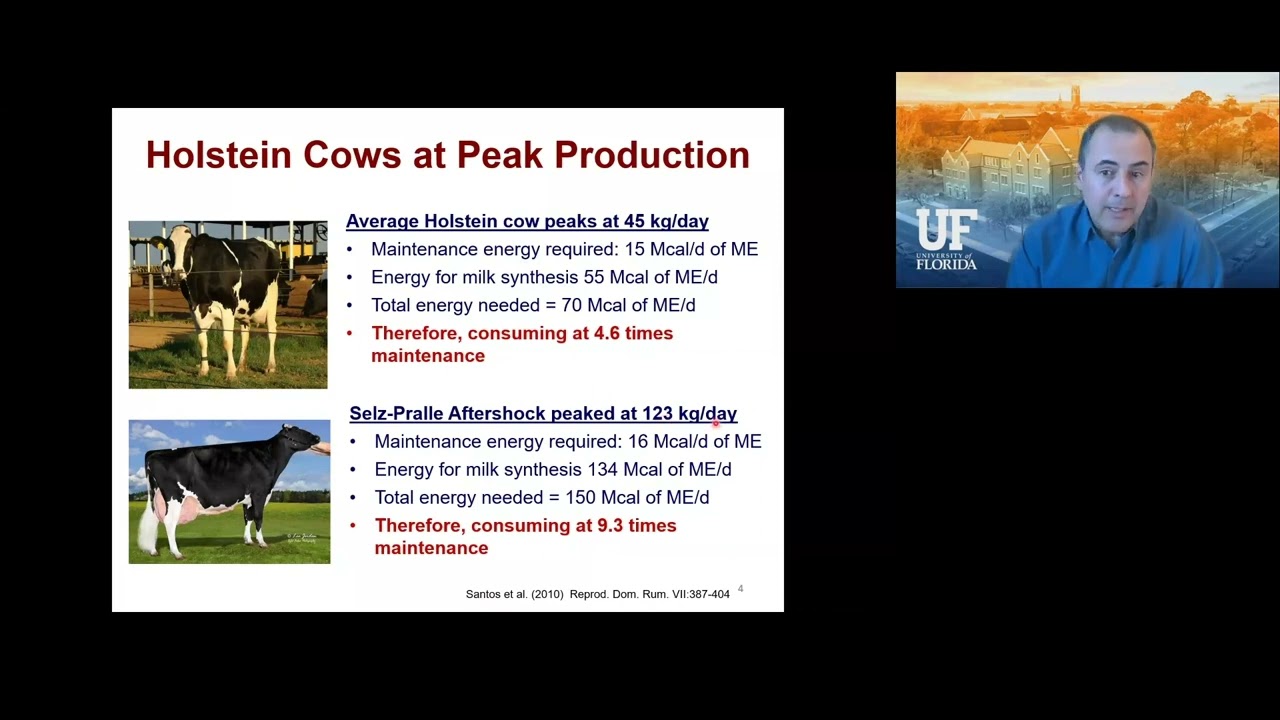Understanding The Connection Between Nutrition And Reproductive Health
Nutrition plays a crucial role in understanding the connection between nutrition and reproductive health, and this is especially true when it comes to reproductive health. Proper nutrition is essential for maintaining the health of the reproductive system, from the function of the reproductive organs to the production of hormones and the development of a healthy fetus.
Author:Suleman ShahReviewer:Han JuFeb 14, 20233.3K Shares424.1K Views

Nutrition plays a crucial role in understanding the connection between nutrition and reproductive health, and this is especially true when it comes to reproductive health.
Proper nutrition is essential for maintaining the health of the reproductive system, from the function of the reproductive organs to the production of hormones and the development of a healthy fetus.
It is important to understand the connection between nutrition and reproductive health to optimize fertility and promote healthy pregnancy outcomes.
Understanding The Connection To Nutrition
To understand the connection between nutrition and reproductive health, it is important to first understand the role of nutrition in the body.
Nutrition provides the body with the essential vitamins, minerals, and nutrients it needs to function properly.
These nutrients are essential for maintaining the health of the reproductive system, as well as for supporting the growth and development of a healthy fetus during pregnancy.
One key nutrient for reproductive health is iron, which is essential for the production of hemoglobin, the protein in red blood cells that carries oxygen to the body's tissues.
Iron is also important for the health of the immune system, which is especially important during pregnancy when the immune system is challenged by the presence of a foreign body (the fetus).
Another important nutrient for reproductive health is folic acid, which is crucial for the development of the fetus's nervous system.
Adequate folic acid intake can help reduce the risk of neural tube defects, such as spina bifida, in the developing fetus.
It is important to consume enough folic acid before and during pregnancy, as the neural tube forms within the first 28 days of pregnancy, which is often before a woman even knows she is pregnant.
Understanding The Connection Of Reproductive Health
In addition to specific nutrients, overall diet quality is also important for reproductive health. Diets that are high in processed foods, added sugars, and unhealthy fats can negatively impact reproductive health.
On the other hand, diets that are rich in whole, nutrient-dense foods, such as fruits and vegetables, lean protein, and healthy fats, can support reproductive health and fertility.
It is also important to maintain healthy body weight for optimal reproductive health. Being overweight or underweight can impact hormone levels, ovulation, and fertility, making it more difficult to conceive.
Maintaining a healthy body weight through a balanced diet and regular exercise can improve fertility and support healthy pregnancy outcomes.
In addition to diet, lifestyle factors, such as stress and exposure to environmental toxins, can also impact reproductive health.
Stress can impact hormone levels and disrupt ovulation, while exposure to environmental toxins, such as tobacco smoke and certain chemicals, can interfere with fertility and increase the risk of birth defects.
Understanding The Connection Between Nutrition And Reproductive Health - Key Nutrients For Reproductive Health
Here are some nutrients that will help you in reproductive health.
Iron
Iron is an essential mineral that plays a critical role in the production of hemoglobin, the protein in red blood cells that carries oxygen to the body's tissues.
Adequate iron intake is necessary for the maintenance of healthy red blood cells, which is especially important for women who are menstruating or pregnant, as they lose more iron each month.
Low iron levels can lead to anemia, a condition in which the body does not have enough red blood cells to carry oxygen to the tissues, resulting in fatigue and weakness. Iron-rich foods include red meat, poultry, fish, beans, lentils, and dark leafy greens.
Folic Acid
Folic acid is a B vitamin that plays an important role in the development of the fetus's nervous system.
It is crucial for the proper formation of the neural tube, which becomes the brain and spinal cord, in the early stages of pregnancy.
Adequate folic acid intake can help reduce the risk of neural tube defects, such as spina bifida, in the developing fetus.
Folic acid can be found in foods such as leafy greens, citrus fruits, beans, and whole grains, as well as in fortified cereals and bread. Women who are planning to become pregnant are advised to consume at least 400 micrograms of folic acid daily.
Calcium
Calcium is a mineral that is critical for the development and maintenance of strong bones and teeth.
During pregnancy, calcium is also important for the development of the fetus's bones and teeth, as well as for the proper functioning of the heart, muscles, and nerves.
Adequate calcium intake can also help prevent the development of gestational hypertension and pre-eclampsia, which are conditions that can occur during pregnancy and can lead to serious health problems for both the mother and the fetus.
Good sources of calcium include dairy products, such as milk, cheese, and yogurt, as well as leafy greens, nuts, and fortified foods, such as orange juice.
Understanding The Connection Between Nutrition And Reproductive Health - The Importance Of Diet Quality
A balanced diet that is rich in whole, nutrient-dense foods, such as fruits and vegetables, lean protein, and healthy fats, can support reproductive health and fertility.
On the other hand, a diet that is high in processed foods added sugars, and unhealthy fats can negatively impact reproductive health.
A diet that is high in added sugars and unhealthy fats can lead to weight gain, which can interfere with hormone levels and ovulation, making it more difficult to conceive.
In addition, diets that are low in nutrient-dense foods can lead to nutrient deficiencies, which can impact the health of the reproductive system and the development of a healthy fetus.

Transitioning to Success: The Intersection Between Nutrition, Health, & Reproduction - Dr. Santos
Understanding The Connection Between Nutrition And Reproductive Health - Maintaining A Healthy Body Weight
Maintaining healthy body weight is important for optimal reproductive health. Being overweight or underweight can impact hormone levels, ovulation, and fertility, making it more difficult to conceive.
Maintaining a healthy body weight through a balanced diet and regular exercise can improve fertility and support healthy pregnancy outcomes.
In addition, women who are overweight or obese during pregnancy are at increased risk of developing gestational diabetes, hypertension, and pre-eclampsia, which can lead to serious health problems for both the mother and the fetus.
People Also Ask
What Is The Connection Between Nutrition And Reproductive Health?
The connection between nutrition and reproductive health is strong, as a balanced diet that is rich in whole, nutrient-dense foods can support fertility and healthy pregnancy outcomes, while a diet that is lacking in nutrients can negatively impact reproductive health.
What Nutrients Are Important For Reproductive Health?
Nutrients that are important for reproductive health include iron, folic acid, and calcium.
Can Being Overweight Or Underweight Impact Reproductive Health?
Yes, being overweight or underweight can impact reproductive health by affecting hormone levels, ovulation, and fertility, making it more difficult to conceive.
Conclusion
In conclusion, understanding the connection between nutrition and reproductive health is essential for optimizing fertility and promoting healthy pregnancy outcomes.
Proper nutrition, including adequate intake of key nutrients and a diet rich in whole, nutrient-dense foods, can support the health of the reproductive system and the development of a healthy fetus.
Maintaining healthy body weight and avoiding exposure to environmental toxins can also have a positive impact on reproductive health.
By prioritizing nutrition and lifestyle, individuals can take control of their reproductive health and increase their chances of having a healthy pregnancy.
Jump to
Understanding The Connection To Nutrition
Understanding The Connection Of Reproductive Health
Understanding The Connection Between Nutrition And Reproductive Health - Key Nutrients For Reproductive Health
Understanding The Connection Between Nutrition And Reproductive Health - The Importance Of Diet Quality
Understanding The Connection Between Nutrition And Reproductive Health - Maintaining A Healthy Body Weight
People Also Ask
Conclusion

Suleman Shah
Author
Suleman Shah is a researcher and freelance writer. As a researcher, he has worked with MNS University of Agriculture, Multan (Pakistan) and Texas A & M University (USA). He regularly writes science articles and blogs for science news website immersse.com and open access publishers OA Publishing London and Scientific Times. He loves to keep himself updated on scientific developments and convert these developments into everyday language to update the readers about the developments in the scientific era. His primary research focus is Plant sciences, and he contributed to this field by publishing his research in scientific journals and presenting his work at many Conferences.
Shah graduated from the University of Agriculture Faisalabad (Pakistan) and started his professional carrier with Jaffer Agro Services and later with the Agriculture Department of the Government of Pakistan. His research interest compelled and attracted him to proceed with his carrier in Plant sciences research. So, he started his Ph.D. in Soil Science at MNS University of Agriculture Multan (Pakistan). Later, he started working as a visiting scholar with Texas A&M University (USA).
Shah’s experience with big Open Excess publishers like Springers, Frontiers, MDPI, etc., testified to his belief in Open Access as a barrier-removing mechanism between researchers and the readers of their research. Shah believes that Open Access is revolutionizing the publication process and benefitting research in all fields.

Han Ju
Reviewer
Hello! I'm Han Ju, the heart behind World Wide Journals. My life is a unique tapestry woven from the threads of news, spirituality, and science, enriched by melodies from my guitar. Raised amidst tales of the ancient and the arcane, I developed a keen eye for the stories that truly matter. Through my work, I seek to bridge the seen with the unseen, marrying the rigor of science with the depth of spirituality.
Each article at World Wide Journals is a piece of this ongoing quest, blending analysis with personal reflection. Whether exploring quantum frontiers or strumming chords under the stars, my aim is to inspire and provoke thought, inviting you into a world where every discovery is a note in the grand symphony of existence.
Welcome aboard this journey of insight and exploration, where curiosity leads and music guides.
Latest Articles
Popular Articles
